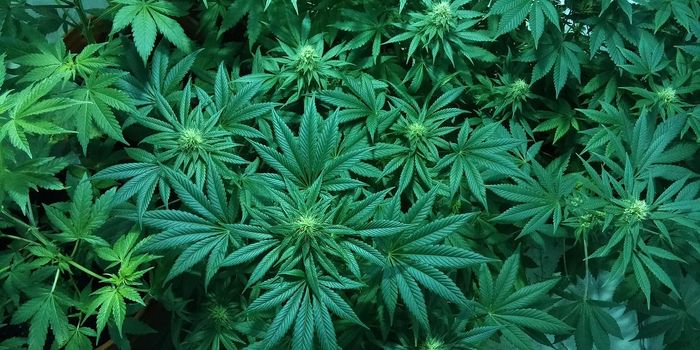Effects of Low Cannabis Use in Teens on the Brain
A recent article published in the Journal of Neuroscience presents more data to suggest that marijuana use in adolescents is harmful to brain development at this stage of life. This particular study focused on teens who have smoked very little marijuana. While most studies have looked at neural correlates related to heavy use in teenagers, this study focused on kids who have just smoked as little as once or twice at the age of 14. Results found increases in grey matter (where the cell bodies of neurons live) in this population, especially in the amygdala and the hippocampus.
MRI image illustrating grey and white matter. Source: Pixabay.com
This study, published by Drs. Hugh Garavan, Ph.D. and Catherine Orr, Ph.D., from the Larner College of Medicine at the University of Vermont, adds to the cumulative body of work showing that cannabis use among teenagers poses a severe risk to adolescent brain development. These changes also seem to correlate with issues such as problems in school performance; higher likelihoods to develop depression; and increased risk for cigarette use.
Several pieces of evidence show that heavy early cannabis use in adolescents can have detrimental effects on the brain. Teen marijuana users generally had worse scores on memory and attention tasks compared to controls. They also had more hippocampal activation during the completion of these tests. These results were interpreted as a failure of inhibitory neurons to calm down hippocampal activity in order for it to perform at its optimal level. Furthermore, measurements of cerebral blood flow (a proxy for neuronal activity) was decreased across several brain regions in teens who were heavy marijuana users compared to controls. Fortunately, four weeks of abstinence corrected these deficits in cerebral blood flow.
Source: Pixabay.com
What is interesting about the current study is that the brains of young teens were found to already differentiate from controls after only using once or twice at age 14. This is the first study looking at whether low use of marijuana still alters adolescent brains. The findings point to developmental deficits due to low cannabis use. According to Dr. Garavan, "You're changing your brain with just one or two joints. Most people would likely assume that one or two joints would have no impact on the brain." The reason for the increase in grey matter is unclear, but it could be related to the process of "pruning" that is still occurring in teenagers.
Pruning is a very important process in neurodevelopment. It is a process by which unnecessary neuronal connections are removed, or "pruned" during the development into a full adult brain. This process occurs mainly during infancy, and deficiencies of the pruning process at this age have been proposed as a mechanism for autism. This is not to say that marijuana use will make young users autistic, but it does highlight the sensitivity of our brains during our teenage years to cannabis.
Check out this video that wonderfully illustrates the effects of cannabis on the developing teen brain.
Sources: Journal of Neuroscience, Addiction, Annals of the New York Academy of Sciences, Psychopharmacology, ScienceDaily.com, Mental Health Weekly Digest










